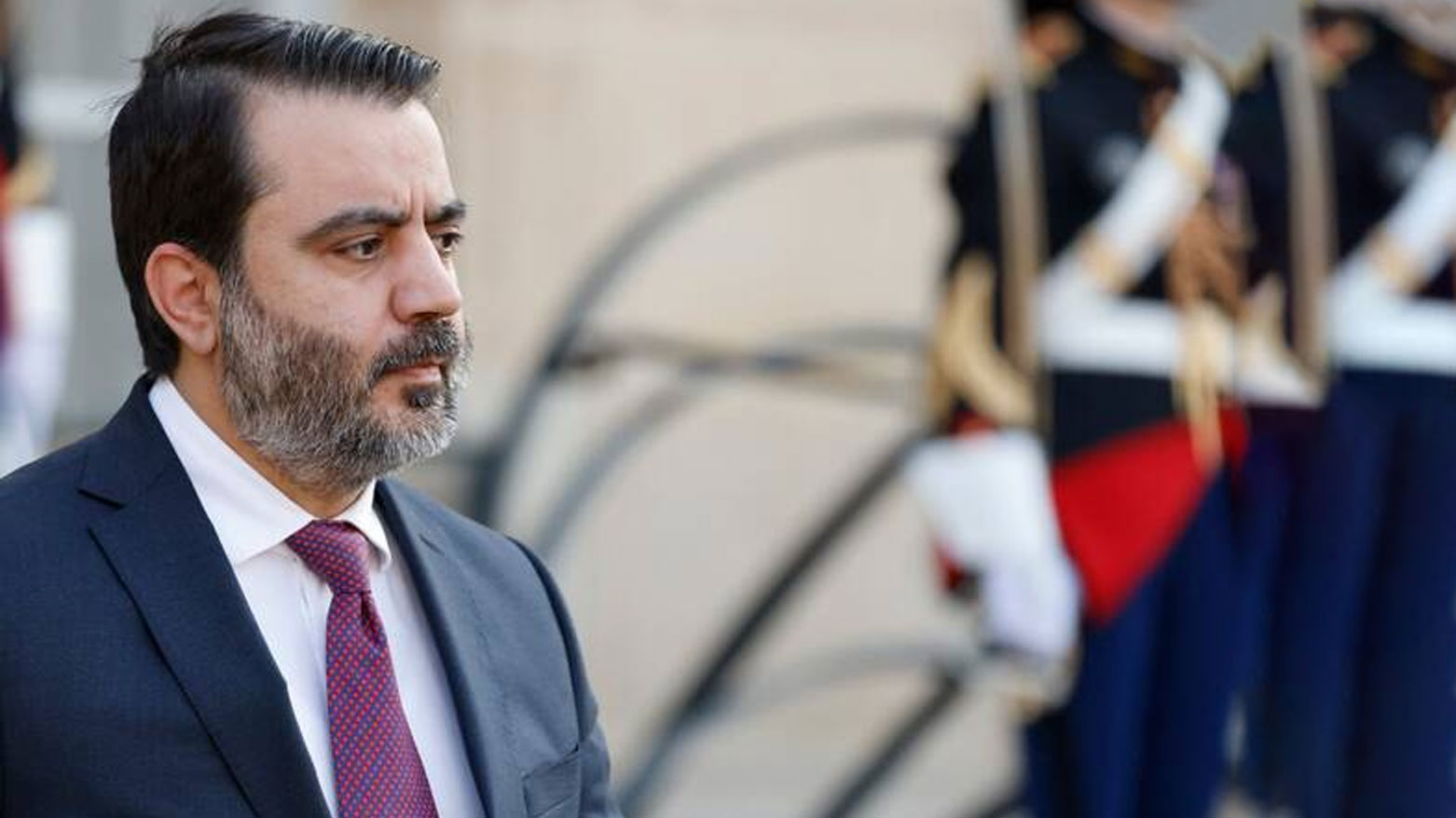Syrian Transitional Government Outlines Bold New State Strategy With SDF Integration
Syrian FM outlines full SDF integration, strict stance on Israel, recalibrated Russia ties, and inclusive governance. Mazloum Abdi and Kurdistan Region leadership endorse federal-style model and cooperation, signaling strategic, pragmatic reshaping of Syria’s domestic and regional posture.

ERBIL (Kurdistan24) - In a series of candid revelations, Syrian Transitional Government Foreign Minister Asaad al-Shaibani detailed a comprehensive strategy to reshape Syria’s internal and external posture, emphasizing integration with the Syrian Democratic Forces (SDF), recalibrated relations with Russia, and uncompromising territorial sovereignty in dealings with Israel.
Speaking to Istanbul’s Al-Majalla magazine, al-Shaibani unveiled an initiative aimed at the full incorporation of the SDF into Syria’s state institutions, asserting: “We presented everything to the SDF: an agreement, respect, full rights, representation, and even mediation with Türkiye. What more can we do? These are not temporary solutions, but a genuine partnership. For the first time, Türkiye and the United States agreed on a single approach… and we are at its heart.” He clarified that the initiative did not demand SDF surrender or assimilation, but rather invited them to integrate with guarantees protecting their rights. “This is not a concession, this is a state formula,” he said.
On relations with Israel, al-Shaibani was unequivocal: “We will not pursue peace at any cost. We will not sign any agreement while our land is occupied. The condition is clear: complete withdrawal to the line of December 7, 2024. If they want an agreement, they must return to the borders. Otherwise, there is no agreement… no concession.”
Al-Shaibani further outlined Syria’s stance on global alignments: “We do not believe in axes. We are like an antenna… wherever Syria’s interest lies, we direct the signal.” Reflecting on Syria’s evolving domestic image, he stated succinctly: “We Syrians… have dignity. Syria belongs to the Syrians.”
Al-Shaibani also addressed the recalibration of relations with Moscow, historically a close ally of the Assad regime. He described a deliberate strategy, internally dubbed “untying the Russian knot,” aimed at shifting Russia’s allegiance from a single regime to the Syrian state. Reviewing Syria’s recent history, from the fall of Aleppo in 2016 to the Sochi ceasefire in 2020, al-Shaibani and his team analyzed the failures and miscalculations of past opposition strategies and the exploitation of divisions by Russian and Iranian forces.
From this assessment emerged a tactical premise: Russia’s interests in Syria could be preserved without backing an unreliable regime. “We began from the position that the current perception of Russia siding with the Assad regime is wrong. This position can change… to establish a partnership with Syria and its people, not a regime that cannot be relied upon,” al-Shaibani said. He later emphasized a key message delivered to Moscow: “We told them: the fall of Bashar’s regime does not mean Russia must leave Syria.”
This approach reframed Syrian-Russian relations as a pragmatic engagement based on clear, balanced agreements rather than unilateral concessions. Al-Shaibani criticized prior arrangements as one-sided: “I reviewed the Hmeimim agreement between them and the regime. It is a one-sided deal… we reorganize this relationship prioritizing Syria’s interest above all. If there is mutual interest, we proceed; if not, we do not… I will not leave them as decoration.”
Al-Shaibani’s strategy avoids revenge or exclusion, opting for measured repositioning: no calls to expel Russia, no return to destructive axes politics, and instead leveraging Moscow’s own pragmatism. “I see their stance as intelligent, honestly, much smarter than the Iranians and more pragmatic… we try to transcend what can be transcended… wherever Syria’s interest points, we focus,” he said.
This new framework extends beyond Russia. Coordination with Türkiye, openness to Europe, and groundwork with President Ahmed al-Sharaa signal a broader pivot toward the Gulf and the United States, crafting a multidimensional balance of power.
The SDF’s role in this transformation is central. Mazloum Abdi, General Commander of the SDF, confirmed in an interview with Mezopotamya Agency that a “new process” has commenced with the Kurdistan Region, reflecting deepening strategic cooperation. Abdi described Syria’s largest organized force as prepared to integrate into the Syrian army, preserving fighters’ legacy while strengthening national security: “No one should fear this… the SDF must regularly join the Syrian army,” he said. He stressed inclusive representation of Druze, Alawites, Sunnis, Ismailis, and Christians within the SDF, highlighting the broader inclusivity of the integration process.
Supporting this, Kurdistan Region President Nechirvan Barzani, during the MEPS 2025 forum on Nov. 18, 2025, emphasized that Syria’s future requires a federal model acknowledging its multi-ethnic and multi-religious composition. He noted that a strong central administration is unlikely to succeed, affirming the necessity of dialogue between Damascus and the SDF and readiness of the Kurdistan Region to assist in implementing agreements such as the March 10 accord.
Through coordinated diplomacy with Russia, Türkiye, Europe, the Gulf, and the US, coupled with domestic restructuring and SDF integration, the Syrian Transitional Government positions itself at the center of a recalibrated regional architecture, signaling a new chapter in Syria’s long-standing conflicts.
Al-Shaibani’s declarations signal a decisive shift from confrontation to pragmatic diplomacy, an assertive assertion of Syrian sovereignty, and an inclusive approach to internal governance. With strategic alliances recalibrated and the SDF poised to integrate into state institutions, Syria’s new leadership under Ahmed al-Sharaa is charting a path aimed at stability, balance, and national dignity.